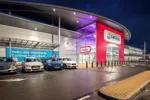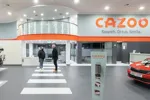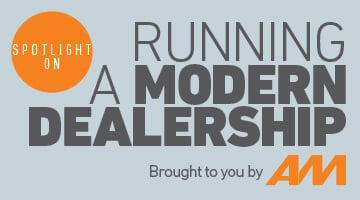The National Franchised Dealers Association (NFDA) has called for a “targeted and consistent approach” to addressing urban air quality and the adoption of electric vehicles (EV) following Bristol City Council’s decision to ban diesel vehicles from its streets.
The Bristol City Council has voted to agree to ban privately owned diesel cars from a central zone between 7am and 3pm – with commercial vehicle operators able to pay a fee to enter the area – as part of a scheme which could start in 2021 if it receives Government approval.
But NFDA director Sue Robinson has urged Government to ensure that diesel car owners are not penalised by plans intended to promote the adoption of low-emission vehicles.
“Franchised retailers are making significant investments and efforts to encourage the transition to a low and ultimately zero carbon market, but we need a targeted and consistent approach by Government, industry and key stakeholders to ensure a stable uptake of low emission vehicles”, she said.
“It is important to differentiate between old and new diesel. Modern, Euro 6d-temp diesel cars, which comply with the latest European emission regulations, still represent the most efficient vehicles for many motorists and emit less CO2 than their petrol equivalents.
“Consumers who previously bought specific cars in good faith and, often, following Government advice, must not be penalised. Also, incentives, such as a scrappage scheme, must be offered to support the switch to greener cars.”
Robinson added: “NFDA’s Electric Vehicle Approved (EVA) accreditation scheme and retailers’ enthusiastic response to it, demonstrate the efforts the retail side of the automotive industry is making to encourage the uptake of electric cars.”
Bristol’s diesel car ban was approved by the City Council’s cabinet at a meeting yesterday (Tuesday, November 5).
Nigel Base, commercial vehicle manager at the Society of Motor Manufacturers and Traders (SMMT), was among those to question the all-encompassing move to prevent diesel vehicle entering the city.
Quoted in AM’s sister publication, Fleet News, he said: “We want to see all cities, including Bristol, meet their targets and continue to invest in ever more advanced technology to help improve our environment.
“However, this proposed blanket ban, which goes against government’s guidelines, fails to distinguish between modern vehicles and decades-old technologies and will only cause confusion for drivers while also undermining efforts to boost air quality.
“The automotive industry is committed to a low carbon future, and is investing massively to get there. Average CO2 emissions from new cars have declined by around a third since 2000, and the development of the latest low emission technology has resulted in new vehicles that have vastly reduced NOx and virtually eliminated particulates.
“Instead of the proposed ban, we need a clear and consistent national approach to clean air zones that incentivises uptake of the latest, low emission vehicles, including new Euro 6 diesels, which are the cleanest ever produced, alongside improvements to traffic flow and investment in charging infrastructure.”














Login to comment
Comments
No comments have been made yet.